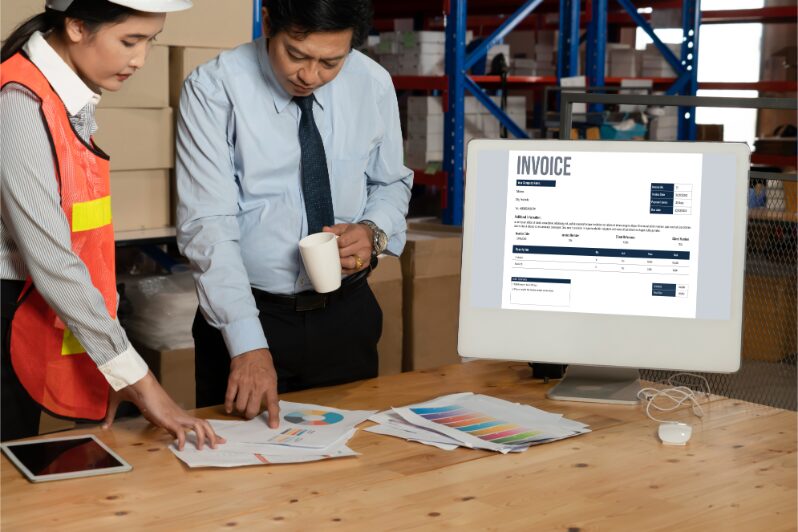The (FCJ) Federal Customs Jurisdiction, under the directive of the UAE government, now has the power to inspect customs and salable documentation related to import activities. The authority for tax-paying initiatives to bring into line with these guidelines has never been more serious. In this article, we will see the businesses with the understanding to direct this go-ahead regulatory landscape, the process of preparing customs compliance audits, and the essential documents that may be needed to provide to the customs officers.
Contact us now
What is a Custom Audit?
A Customs Audit is the inspection of financial records and other business records. It validates the obedience of the business to the relevant regulations and Revenue necessities.
The automated declaration enables importers and exporters to let go of housing documents to a customs post. Under the support of the UAE government, the (FCA) Federal Customs Authority is conferred with the influence to petition inspection of customs-related and trade papers associated with stock imports. In a current growth, the tax regulatory entity has introduced customs audits for both import and export events.
How to Prepare for a Customs Audit in Dubai?
Fronting a Dubai customs compliance audit can be an essential occurrence for your business. It ensures that your import and export activities endure in obedience to protocols. Practical preparation is the main key to not only rationalizing the audit process but also validating your assurance of customs compliance. Here's a comprehensive guide for Businesses to prepare for a Customs Audit in Dubai.
1. Be Ready Well in Advance
Keenness is your ally is very important. Start formulating for a customs audit well formerly it's planned. Start an internal compliance team that is answerable for;
- Gathering the essential documents
- Bridging with related departments
- Supervision of the audit process
2. Resolve Fluctuations in Agreements
Any amendments in agreements associated with imports, exports, or customs statements should be thoroughly submissive. This contains;
- Changes in terms
- Quantities
- Prices
- Any other prescribed obligations
3. Settle Substantial Accounts with Imports and Exports
Ensure careful settlement of your financial records and pay attention to accounts related to imports and exports. A thorough and correct record of these transactions is a foundation of customs obedience.
4. Classify Important Fluctuations in Business Operations
Highpoint any significant changes in your business processes that could affect customs obedience. This could comprise;
- Changes in suppliers
- Products
- Markets served
5. Gather Amendments and Agreements
Collect all relevant agreements, comprising contracts with dealers, traders, and other partners. Having these documents gladly open not only accelerates the audit process but also demonstrates transparency.
6. Focus on Forestalling Audit Requests
Put yourself in the auditor's desk. Antedate possible requests and areas of inspection. Address any contradictions or uncertainties in your records proactively.
What are the significant Documents that you may provide to Custom Officers?
While preparing a customs compliance audit, bestowing accurate documents to customs officers is supreme. These documents show a clear image of your import and export actions, supporting your assurance of devotion. Here are some significant documents that can help rationalize the audit procedure and confirm compliance;
-
Import and Export Entries along with Supportive Documentation
Complete records of imports and exports boosted by pertinent supporting documents offer a strong understanding of your trade dealings.
-
Monetary Transactions Records
Credit slips, bank statements, check stumps, and transfer slips deliver a comprehensive impression of the financial flow related to your imports and exports.
-
Audited Accounts for the Audit Period
Bestowing audited accounts during the period under inspection improves transparency and shows your promise to correct financial reporting.
-
Purchase and Sale Journal
Purchase and Sale Journal assists as a main record of purchases and sales. It sheds light on the conversation of goods and services that navigate customs borders.
-
Cashbooks and Ledgers
Irrespective of their type, cashbooks, and ledgers offer a complete interpretation of financial activities. It contributes to a detailed audit process.
-
Stock Records or Inventory Reports
Providing well-kept stock records or inventory reports validates careful control over goods in transportation.
-
VAT Returns and VAT Accounting Records
VAT accounting records and related returns disclose your obedience to tax rules. It ensures customs compliance audits with government directives.
Contact us now
Conclusion
In the intricate land of global trade, Dubai Customs audits confront a serious frontier for businesses aiming to direct regulatory waters flawlessly. By comprehending the shades of customs obedience and mobilization themselves, businesses can confirm smoother processes and lasting development. Careful preparation, correct documentation, and expert support, such as that offered by Audit Firms in Dubai(AFD). Top audit firm in Dubai, play essential roles in succeeding the encounters of Dubai Customs audits.
Read More: What Are The Practical Steps For A Statutory Audit In Dubai
Theshani is a Senior auditor and has experience of 4+ years in providing audit assurance and advisory services to a wide range of industry clients. She continues to stay on top of ever-changing industry dynamics by continuously learning and developing expertise.
